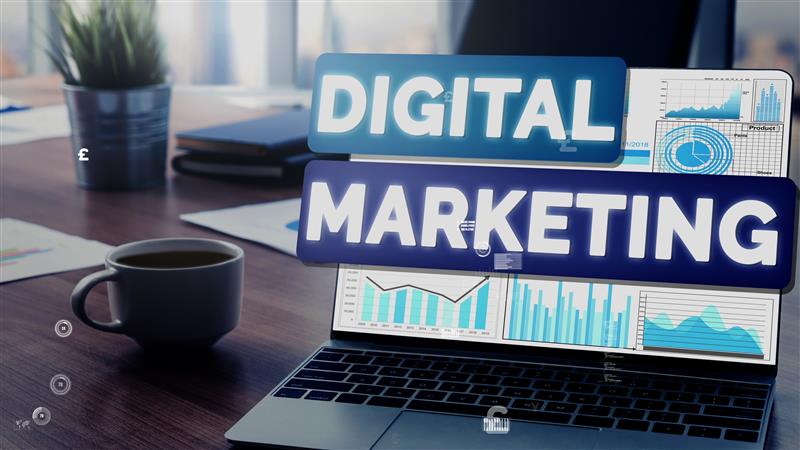In the ever-evolving world of digital marketing, staying ahead of the competition requires not only creativity and strategy but also the right set of tools. In 2025, marketers have access to a range of cutting-edge tools that can streamline processes, improve efficiency, and maximize the impact of their campaigns. From artificial intelligence-driven analytics to automation platforms that handle repetitive tasks, these tools are transforming how digital marketing professionals approach their work.
Let’s explore some of the best tools that will be indispensable for digital marketers in 2025.
1. AI-Powered Analytics Tools: Unlocking Deeper Insights
Artificial intelligence continues to play a major role in digital marketing, and in 2025, it’s more important than ever to leverage AI-powered analytics tools. Platforms like Google Analytics 4 and HubSpot are using machine learning to help marketers understand consumer behaviour more deeply than traditional analytics platforms.
These tools can predict trends, automate data reporting, and even suggest content or strategies based on user behaviour. By using AI, marketers can make data-driven decisions faster and with more precision, leading to better targeting and personalized campaigns.
2. Automation Platforms: Streamlining Campaigns for Efficiency
Digital marketing is often a juggling act—multiple campaigns, varied platforms, and endless tasks. This is where automation platforms such as Zapier, Hootsuite, and Mailchimp come in. These tools allow marketers to automate repetitive tasks like social media scheduling, email marketing, and even customer segmentation.
In 2025, automation tools are becoming more intelligent, enabling even more nuanced actions like automatically adjusting campaigns based on performance metrics, segmenting customer lists with greater precision, and even personalizing messages in real-time.
3. Content Creation and Editing Tools: Elevating Creativity
Creating high-quality content is at the heart of successful digital marketing, and in 2025, tools like Canva, Adobe Creative Cloud, and Lumen5 are helping marketers produce stunning visuals, videos, and graphics quickly and efficiently. Whether you’re a seasoned designer or a marketing professional with limited design experience, these tools simplify the creative process.
Video content is especially important, and platforms like Lumen5 enable marketers to convert blog posts into engaging videos, while Adobe Premiere Pro offers professional-grade editing tools for more intricate video creation. The right content creation tools are essential for maintaining a visually appealing and consistent brand presence.
4. Social Media Management Tools: Mastering Multiple Platforms
Social media remains a dominant force in digital marketing, and managing multiple platforms can quickly become overwhelming. That’s where tools like Sprout Social, Buffer, and Agorapulse come into play. These platforms allow marketers to schedule posts, track social media engagement, and analyze the performance of their social media campaigns across different channels from one centralized dashboard.
In 2025, social media tools will become even more integrated with other marketing platforms, enabling seamless cross-channel campaigns and enhanced performance tracking.
5. Customer Relationship Management (CRM) Tools: Nurturing Leads
Customer relationship management (CRM) systems like Salesforce, Zoho, and Pipedrive have long been a staple of digital marketing. These tools enable businesses to manage customer interactions, track sales progress, and provide personalized customer experiences. In 2025, the best CRM tools are integrating more with artificial intelligence, providing deeper insights into customer behaviour, automating follow-ups, and predicting future customer actions.
For digital marketers, a well-implemented CRM system helps to nurture leads, enhance customer loyalty, and streamline communication across teams.
6. SEO Tools: Optimizing for the Future of Search
As search engines continue to evolve, so do the tools we use to optimize for them. SEMrush, Ahrefs, and Moz are all essential for 2025’s SEO landscape. These tools help marketers track keyword rankings, analyze backlinks, and monitor competitor strategies. With search algorithms becoming more complex, marketers need to continuously adjust their SEO strategies, and these tools provide the insights necessary to stay ahead of the game.
Additionally, with voice search and AI-driven results gaining more prominence, tools like Google Search Console and Surfer SEO are evolving to offer more precise recommendations for improving search visibility.
7. Conversion Rate Optimization (CRO) Tools: Turning Visitors Into Customers
Even the best digital marketing campaigns are useless without conversions. This is where OptinMonster, Hotjar, and Unbounce come into play. These conversion rate optimization tools help marketers analyze user behaviour on websites, conduct A/B testing, and optimize landing pages to maximize conversions.
By analyzing where users drop off or what areas of the page are getting the most attention, marketers can make data-driven decisions to improve their landing pages, leading to better customer retention and higher conversion rates.
8. Influencer Marketing Platforms: Building Authentic Relationships
In 2025, influencer marketing is expected to remain a key pillar of digital strategy, and platforms like Influencity, Upfluence, and BuzzSumo are the tools that will help brands identify the right influencers for their campaigns. These platforms use AI to analyze influencers' audiences, engagement rates, and overall influence across different social media platforms.
By leveraging these tools, digital marketers can more easily find and collaborate with influencers who truly resonate with their target market, enhancing brand authenticity and expanding reach.
9. Project Management Tools: Keeping Everything on Track
Effective project management is crucial for digital marketing campaigns, and tools like Trello, Asana, and Monday.com help keep teams organized and on track. These platforms allow marketers to manage tasks, set deadlines, and collaborate with team members in real time.
In 2025, digital marketing projects are likely to become even more complex, requiring seamless coordination between different teams—design, content, SEO, and more—and project management tools will be the backbone of that coordination.
Conclusion: The Future of Digital Marketing Tools
As technology advances, so do the tools that digital marketers use to reach and engage their audiences. In 2025, AI, automation, and data-driven insights will continue to dominate the digital marketing landscape. The right tools are essential for staying competitive, improving efficiency, and delivering results that resonate with today’s tech-savvy consumers.
By embracing the latest tools and continuously adapting to emerging trends, digital marketers can drive success in an increasingly crowded online space. It’s not just about staying current—it’s about being ahead of the curve.





Comments